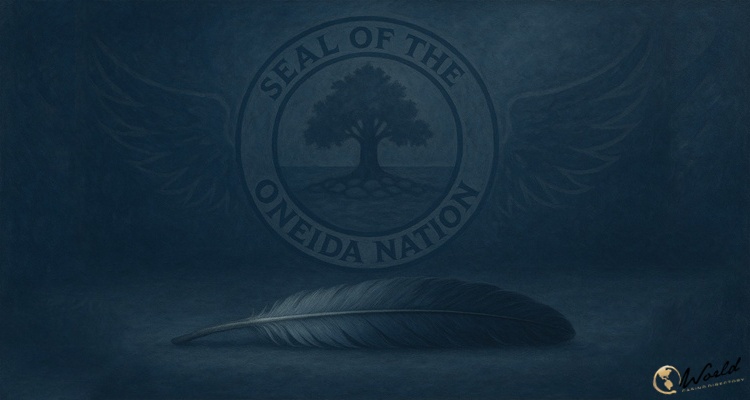Ernest L. “Ernie” Stevens Jr., a pivotal figure in tribal gaming and sovereignty advocacy, died unexpectedly on Friday, September 26, at the age of 66. A citizen of the Oneida Nation of Wisconsin, Stevens served more than two decades as chairman of the Indian Gaming Association (IGA), shaping the industry into a powerful economic and political force.
Ernie Stevens Jr.’s Passing Marks the End of an Era
His family confirmed the news in a statement, writing: “It is with heavy hearts that we announce the passing of our Dad and Papa, Ernie Stevens Jr. We ask for privacy at this time as our family navigates this profound loss.” The Indian Gaming Association echoed the sentiment, describing Stevens as “a warrior, a statesman, and a champion for all of Indian Country.”
Jason Giles, the IGA’s executive director, noted that the board and staff were “stunned and saddened” by the loss. “Ernie Stevens, Jr. was more than a chairman; he was a warrior, a statesman, and a champion for all of Indian Country,” Giles said. “His vision and commitment built bridges across tribal nations, Congress, and federal agencies, ensuring that tribal gaming remained a cornerstone of tribal self-determination and economic growth.”
Stevens assumed the role of IGA chairman in 2000 and was reelected for his 13th term in April 2025. During his leadership, tribal government gaming revenue rose dramatically, increasing from $11 billion in 2000 to $43.9 billion in 2024. This growth made tribal gaming the largest segment of the U.S. gaming industry.
The IGA emphasized that his work safeguarded the Indian Gaming Regulatory Act, strengthened tribal sovereignty, and ensured gaming revenues funded essential services such as education, healthcare, infrastructure, and housing across Indian Country. The National Congress of American Indians (NCAI) praised him for unifying tribal nations and “proving that when Indian Country speaks with one voice, we not only win, but we make lasting change.”
The Seneca Nation added that Stevens’ “leadership, vision, and advocacy on behalf of the industry and nations from across the United States” helped transform tribal economies.
Beyond Gaming: Youth, Athletics, and Community
Stevens’ commitment extended far beyond policy and revenue. He was actively involved in youth development initiatives and sat on boards including the Nike N7 Foundation, the Center for Native American Youth, and the Boys & Girls Club of America’s Native American Advisory Board. United National Indian Tribal Youth described him as someone who “understood that the strength of our Nations rests in the hands of our young people.”
His early years were marked by achievements in athletics. In 1975, he co-founded the Soaring Eagle Boxing Club in Oneida with Louie Askinette, later becoming a four-time state heavyweight champion and twice winning the National Heavyweight Championship. His accomplishments in sports earned him induction into the National Indian Athletic Association Hall of Fame in 2008 and the Boys & Girls Club Alumni Hall of Fame in 2012. In 2015, he was honored with induction into the American Gaming Association’s Gaming Hall of Fame.
Education also remained central to his journey. Stevens earned an associate degree from Haskell Indian Junior College, a bachelor’s in criminal justice from Mount Senario College, and a master’s in management from the University of Phoenix. Haskell continues to celebrate his name with the annual Ernie Stevens, Jr. Classic basketball tournament.
Colleagues and leaders across Indian Country described Stevens as a force of unity, resilience, and inspiration. Washington State House Speaker Pro Tem Chris Stearns remembered him as “a lion of a man” whose faith in people was remarkable. Oneida Nation Chairman Tehassi tasi Hill said Stevens’ contributions to sovereignty and youth programs made him “an amazing man” whose legacy will endure.
As reported by Tribal Business News, Mark Powless, chairman of the Oneida Gaming Commission, captured Stevens’ journey by noting: “From the boxing ring to the boardroom, in his career, he has demonstrated strength, vision, and resilience that uplift tribal communities nationwide.”
Stevens is survived by his wife of more than 45 years, Cheryl, their children Brandon, Ernest III, Margaret, Maria, and Louis, and 20 grandchildren. To many, his greatest legacy lies not only in reshaping the gaming landscape but also in the family and community he cherished.


